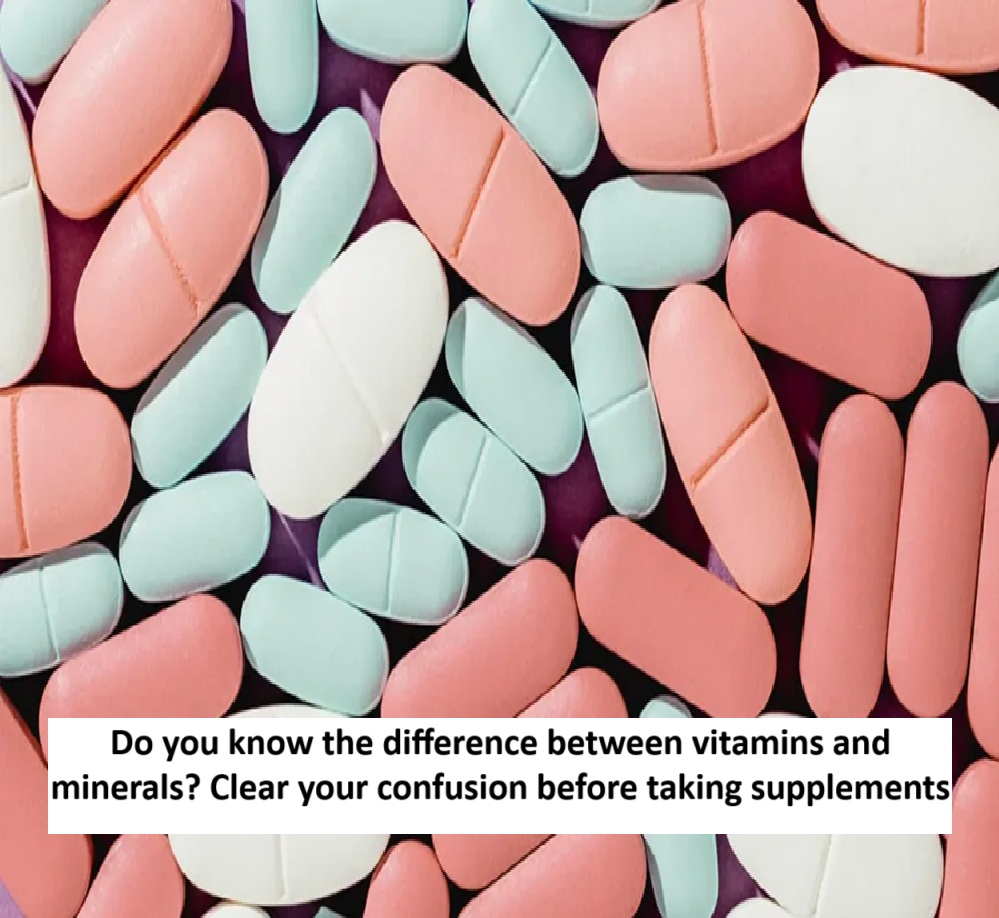
News Topical, Digital Desk : The human body needs about 30 types of vitamins and minerals to perform all its functions. Many times our doctors also prescribe us some vitamin medicines or syrups.
According to science, vitamins are obtained from plants and animals, while the source of minerals is soil and water. Let us know what are these micronutrients and what is the difference between them.
The wonderful world of vitamins
Vitamins are a very small substance found in our food. They are organic, produced by animals and plants. That is why we are advised to eat vegetables, fruits, meat and dairy products which are good sources of vitamins. They are divided into two main types based on their solubility in water and the way they are stored in the body.
- Water-soluble vitamins: These vitamins dissolve in water and are not stored in the body. They do their job and then disappear. Due to this nature, you need to regularly consume these vitamins in your diet. These include vitamin C, B2, B6, B12 and folic acid.
- Fat-soluble vitamins: These vitamins dissolve in fat and are stored in your body's fatty tissues and liver for later use. Since these are stored vitamins, you do not need to take them in your diet every day. A, D, E and K fall in this category of vitamins.
How do minerals help us
Minerals are found deep in the earth and come in many forms. They are not organic, meaning that their source is nonliving. Minerals are absorbed by plants or eaten by animals, which we then consume or use in other products.
It is of two types
- Macrominerals: Macro means big, so they play a bigger role in keeping our body healthy. The body needs these minerals in large quantities. Calcium, phosphorus, magnesium, potassium and sodium are such minerals.
- Microminerals: Micro means small and your body needs them in small quantities. These minerals include zinc, iodine, selenium, copper, manganese, and fluoride.
Each vitamin has a different function
While vitamin A helps keep your eyes and skin healthy, vitamin C helps heal wounds and boost your immune system. B vitamins use energy from your food, make red blood cells and keep your brain and nerves healthy.
While vitamin D strengthens your bones and helps your body use calcium. Vitamin E keeps the skin healthy and also protects the cells from getting damaged. Whereas, vitamin K helps in blood clotting and due to this, you are able to avoid excessive blood loss in case of injury.
Why are minerals important?
Minerals play a vital role in ensuring that your body functions and develops well. While calcium strengthens bones and teeth , chromium plays an important role in maintaining blood sugar. Iodine helps in thyroid health and brain development. Iron maintains energy levels by providing oxygen to your body. There are many other such minerals that play an important role in your health.
What are multivitamins?
A diet that includes all vegetables, fruits and whole grains, good proteins and healthy fats meets your health needs. But not everyone can have such a healthy diet. In that case, multivitamins play their role and fulfill those nutritional needs that are not being met by your food.
--Advertisement--

 Share
Share



